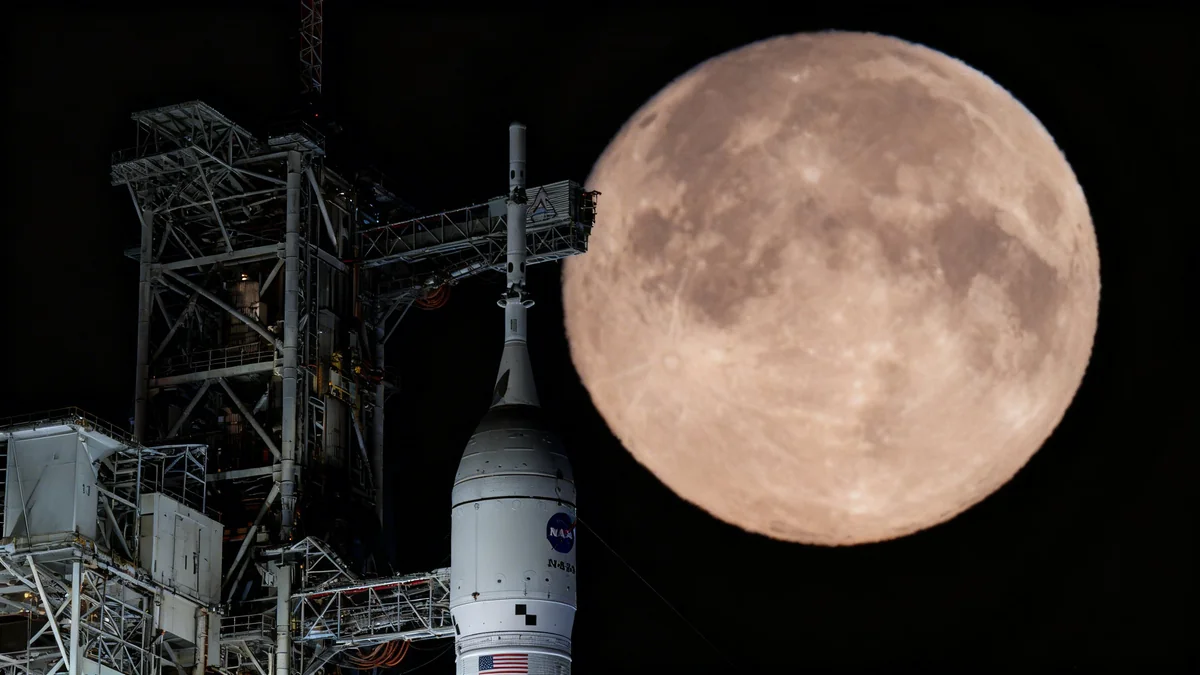The University of Pittsburgh has been selected as one of 15 founding members of the Axiom Space University Alliance, a new initiative aimed at promoting research and development in low-Earth orbit. This partnership places the university at the forefront of a major shift in space exploration, as the industry transitions from government-led missions to commercially operated platforms.
The collaboration will leverage Pitt's expertise in space biomedicine to explore new scientific opportunities in microgravity. The alliance seeks to shape national and international research priorities by identifying key areas for innovation that can benefit both space travel and life on Earth.
Key Takeaways
- The University of Pittsburgh is one of 15 inaugural members of the Axiom Space University Alliance.
- The alliance, launched by commercial space company Axiom Space, will focus on microgravity research in low-Earth orbit (LEO).
- Pitt's Center for Space Biomedicine will play a key role in developing technologies for human health in space and on Earth.
- The initiative marks a critical transition toward commercially owned and operated space stations.
A New Era for Space Science Collaboration
The landscape of space research is undergoing a fundamental transformation. With the International Space Station nearing the end of its operational life, the private sector is stepping in to build the next generation of orbital laboratories. Axiom Space is a leading company in this field, developing the world's first commercial space station.
To ensure this new commercial infrastructure serves the scientific community, Axiom has launched its University Alliance. This group brings together top-tier academic and research institutions to create a unified voice for advancing science in space. The University of Pittsburgh's inclusion in this first cohort highlights its growing reputation in space-related research.
The Shift to Commercial Space
For decades, access to space for research was almost exclusively managed by government agencies like NASA. The rise of companies like Axiom Space is creating a new model where commercial entities own and operate the platforms, such as space stations, and researchers from universities and private companies can conduct experiments. This shift is expected to lower costs and increase access to the unique microgravity environment of low-Earth orbit.
Afshin Beheshti, director of Pitt’s Center for Space Biomedicine, expressed enthusiasm for the collaboration. He noted that the alliance provides a platform for leaders in the field to address common challenges and seize new opportunities together.
“This is an exciting opportunity for Pitt and other leaders in the area to bring space science and manufacturing to the next level,” Beheshti said. “I think we’re going to produce some really great science and projects.”
Pitt's Role in Space Biomedicine
The University of Pittsburgh is not a newcomer to space-related studies. Its inclusion in the alliance is largely driven by the work of Pitt Space, an initiative that includes the specialized Center for Space Biomedicine. This program is dedicated to solving one of the most complex challenges of space exploration: keeping humans healthy in a hostile environment.
Protecting Astronauts and Benefiting Earth
The mission of the Space Biomedicine program is twofold. First, it aims to develop innovative technologies to safeguard human health and optimize performance during long-duration space missions. This includes studying the effects of microgravity and radiation on the human body and creating countermeasures.
Second, the knowledge gained from this research has direct applications on Earth. Understanding how the human body adapts to space can provide new insights into aging, muscle wasting, bone density loss, and immune system function. These findings can be translated into new treatments and therapies for a wide range of terrestrial health issues.
What is Microgravity Research?
In the near-weightless environment of low-Earth orbit, physical and biological processes behave differently. Researchers study these changes to develop new materials, create more effective medicines, and better understand fundamental science. For example, protein crystals grow larger and more perfectly in microgravity, allowing scientists to better understand their structure and design new drugs.
The program also has a strong focus on education and outreach, working to inspire the next generation of scientists and engineers in the field of space biomedicine.
The Future of Research in Low-Earth Orbit
The alliance is being formed at a pivotal moment. As commercial space stations become a reality, there is a critical need to ensure that scientific research remains a priority. The collaboration between Axiom Space and its university partners will help bridge the gap between commercial capabilities and academic research needs.
Lucie Low, the Chief Science Officer at Axiom Space, emphasized the importance of continuing the legacy of scientific discovery that began on government space stations.
“From lifesaving medical innovations to advanced materials and technologies, microgravity research has driven decades of scientific breakthroughs,” Low stated. “And now as we transition from government-led to commercially operated space infrastructure, it’s critical that we preserve and expand access to LEO for research that can benefit us all on Earth as well as continue to advance human exploration further.”
The alliance will work to identify research gaps and opportunities that can inform national and international priorities. By pooling the expertise of its 15 member institutions, the group can advocate for funding and policies that support robust scientific programs on commercial platforms.
Potential Areas of Focus
The collaborative nature of the alliance opens up numerous possibilities for groundbreaking research. Potential projects could span several disciplines, including:
- Advanced Materials: Manufacturing novel alloys and fiber optics that are impossible to create in Earth's gravity.
- Drug Development: Using microgravity to grow better protein crystals for designing more effective pharmaceuticals.
- Regenerative Medicine: Studying how tissues and organs grow in space to advance 3D bioprinting and organoid development.
- Human Physiology: Gaining deeper insights into the aging process by studying the accelerated effects seen in astronauts.
For the University of Pittsburgh, this partnership solidifies its position as a key player in the next chapter of space exploration. By working with Axiom Space and other leading universities, Pitt is poised to contribute to scientific discoveries that will shape the future of humanity, both in space and on Earth.





